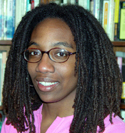With all of the interest people give to having babies, one would assume that the tricky act of raising and caring for a child and the challenges and changes inherent in parenthood would bear equal scrutiny. It does to some extent. Dr. Spock and Penelope Leach have written oodles of books about the development of babies. But what about mothers? Where are the books that delve into their mental, physical, and spiritual changes, concerns, and questions? A quick bookstore scan shows that this information is limited and often focuses narrowly on sociopolitical issues of motherhood versus frank discussions of the role itself.
The clear, concise books on postpartum for mothers can be counted on one hand. But even within these titles, where are the stories from mothers to other mothers? Where are their empowering voices, guiding the scores of women after them into motherhood? In a word, muted.
Naomi Wolf, author of The Beauty Myth, recently became a mother and wrote about her experience. Called Misconceptions, the book’s basic premise is that women have been forced to navigate their own way through childbearing in America, within a system that continues to treat them as if they are unworthy of respectful care that places their thoughts and goals at the center of its services.
Written to illustrate her monthly development, Wolf takes the reader on a personal journey of discovery through nine long months and the birth itself. However, only three chapters discuss what turns out to be her most challenging time, postpartum.
Amazingly, Wolf is not alone in feeling this way. Countless mothers find themselves entering a “no woman zone” during postpartum, reading countless books about what to expect only to find themselves ill prepared and unsure of the many changes that they experience. Counsel with their friends turns up more questions. Talking to a doctor or midwife seems impractical, since many mothers perceive they need less, not more, care from their practitioners now that their babies are born.
Who sees the mother’s postpartum period as the beautiful, mystical, magical, emotionally chaotic experience that it is, and gives dedicated time and attention in a mother’s home to cultivate that experience? Many talented and trained people. High on my list of trusted helpers are postpartum doulas.
These individuals, focused primarily on the postpartum experience of mothers, see pregnancy and birth as critical moments that signal the start, not the end, of a mother’s parenting journey. They know that, contrary to popular opinion, things may get harder, not easier, for a mother once her baby is born. Add trying to become a parent in a society that gives only tenuous support to mothers, not to mention a mother’s own internal changes as she struggles or embraces her new role, and you have a period of adjustment that can take months rather than days to navigate.
As attendants who see mothers periodically during pregnancy before reuniting after birth, postpartum doulas arrive in a new family’s life just when professional support and practical wisdom is needed the most. For most moms, home may be where the heart it, but it is also the one place that they may be unready to return to with their newborns.
The list of things to “watch out for” on returning home with a newborn cannot even compare to the irrational fears a mother may have. These fears can be compounded by a mother’s own feelings of inadequacy and even loss. Gone is the woman she was before her baby was born. In her place stands a mother. Who or what that is to each woman depends on the motherhood models she has seen and her philosophy of motherhood. This is something that can take months, even years to discover.
What ideas do you have about motherhood? What aspects of mothering do you feel are essential? Breast-feeding? Cloth diapering? Transporting a baby in a carrier or sling? What about a mother’s relationship with her partner?
All of these questions point to the inner mind, body, and spirit of a new mother. By learning ways to adjust and sustain these core parts of her, a mother’s evolving identity can truly reflect the mother, the parent, and the partner that she wants to be.
Postpartum doulas assist in this growth and development. Full of practical ideas, armed with community resources, and willing to “show” baby and mother care basics, postpartum doulas act as guides or perhaps simply illuminators of the journey that is a mother’s alone to make.
Many postpartum doulas feel that they are reviving the culturally dead practice of women sustaining women within the community, which used to be a cornerstone of childbearing. If you need this kind of personal care and comfort, find a postpartum doula in your community.
Editor’s Note: This article is adapted from the book, A Holistic Guide to Embracing Pregnancy, Childbirth, and Motherhood: Wisdom and Advice from a Doula by Karen Salt (Perseus Publishing, 2002).
